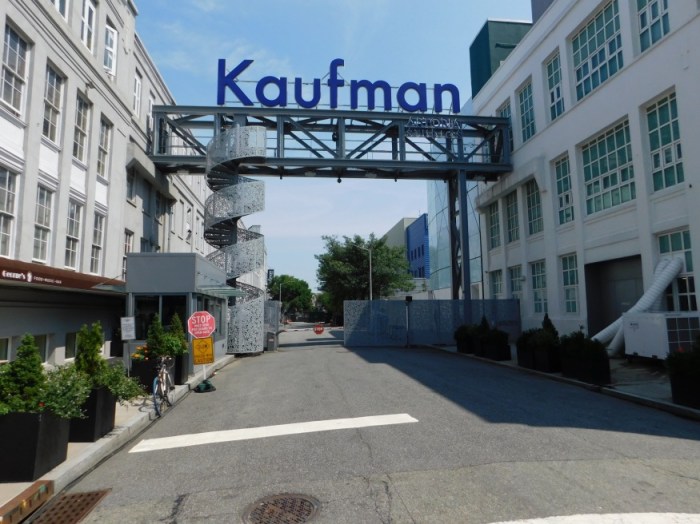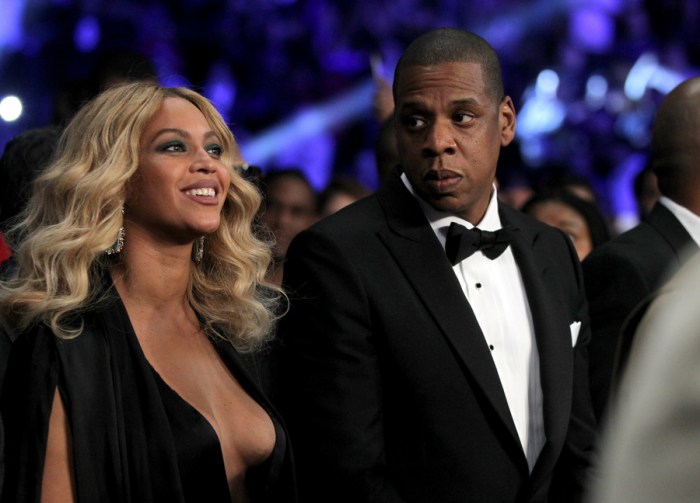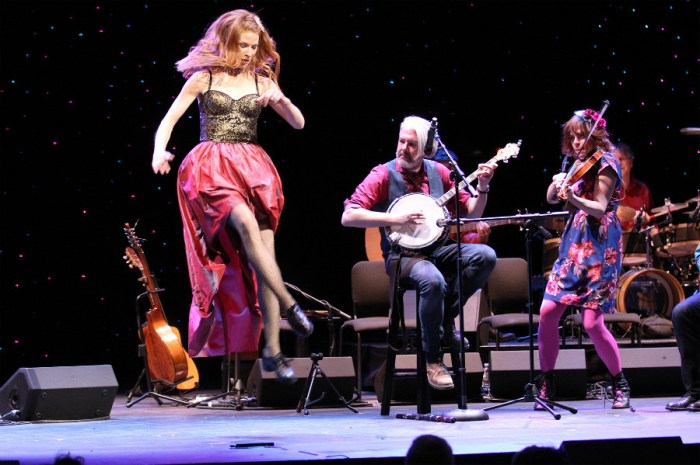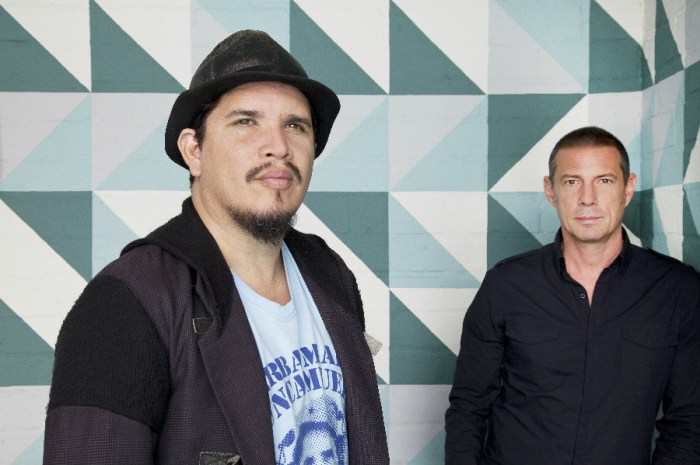Les 7 doigts de la main (otherwise known as the 7 Fingers Circus) is not an ordinary circus. Sprung from the school of Cirque du Soleil, it incorporates elements of theatrics and dialogue into their acrobatic acts, creating productions that are stories, not just shows. It was founded by seven directors (hence its name), each of them traditional circus alumni who wished to intertwine the disciplines of contemporary circus and theater for a totally unique experience. Director Shana Carroll is a California native that found her way to a flying trapeze at age 18, followed by periods of formal training in Paris and Montreal and eventually joining Cirque du Soleil in 1994 where she performed for seven years before founding 7 Fingers in 2002. Carroll is currently in Boston, scoping out the next location for their traveling production, “Cuisine& Confessions,” which arrives at ArtsEmerson’s Cutler Majestic Theatre on July 12. She chats about the engagement. Is there a large difference in the way the circus is perceived in Europe and Canada versus the United States? On that note, what is the difference between a traditional and contemporary circus? How did food become the central elements of “Cuisine and Confessions”? So where did the stories come from? And real food is incorporated into this show, and served to the audience. How does that work? If you go:
Cuisine & Confessions
It’s interesting because in France, there’s a huge contemporary circus movement. In fact, they’re so avant grade that we’re not considered to be all that contemporary. That’s part of our appeal in France; we’re not as extreme. In the U.S., the contemporary circus movement hasn’t hit so much. I did traditional circus and then Cirque du Soleil, and here it’s considered one or the other. I find myself having to explain the subtext and dramaturgy [of our shows] the way you would opera or dance. People understand other forms, but in some sense, the U.S. is behind. Montreal is great because there’s not a lot of circus tradition there, so there wasn’t a heaviness of having to fit a form or rebels against it. It was just creative people finding new things to do with it.
Contemporary circus by definition is theatrical, but I don’t know that title means much to people. There are elements of storytelling. Shows like Cirque du Soleil have a story woven around it or superimposed on top, but the acts are acts. They’re as presentational, and that’s traditional. Part of our trademark is that the acrobatics are the vehicles for telling a story. They’re very expressive and dramaturgic than what most people will expect, but still joyful and full of movement.
My husband is incredibly passionate about food. I always joke that he’ll quit the circus and just open a food truck. So I thought, why not do something close to home? My grandmother wrote a book called “Young and Hungry” that was a memoir and a cookbook at the same time, so I thought let’s do a show that dives into performers’ personal stories as they relate to food. When you give that personal story, it makes them identifiable. That way you don’t just have these superhuman feats that you can’t relate to, you get to know them as human beings. It becomes a more emotional experience than just watching them go 20 feet in the air.
We had each of [our performers] go up one-by-one and tell stories about every family member and relate them to food memories. We wove the show together with the sense that being in the kitchen is an intimate place. You hear that joke that everyone ends up in the kitchen at parties. Then there’s that visceral sense of smelling something cooking. It brings back memories.
There’s a moment where we cook an omelette for a single person but the entire choreography lasts four minutes. The omelette story is a performer named Melvin, who grew up with five brothers and sisters but was the only one who didn’t know his father. So on the day his siblings went to visit their father, he would spend the day with his mother and she would make him this omelette. It was bittersweet because he would spend time with her and get more food than he’d usually get, but it was also a symbol that he didn’t have a father. Then we bake banana bread that’s linked to someone’s story and share it with the audience. But we don’t bake enough for 500 people so we divvy it up at the end.
July 12-Aug 7
Cutler Majestic Theatre
219 Tremont St
$25-$80, 617.824.8400
Highflying and hungry at Cuisine & Confessions
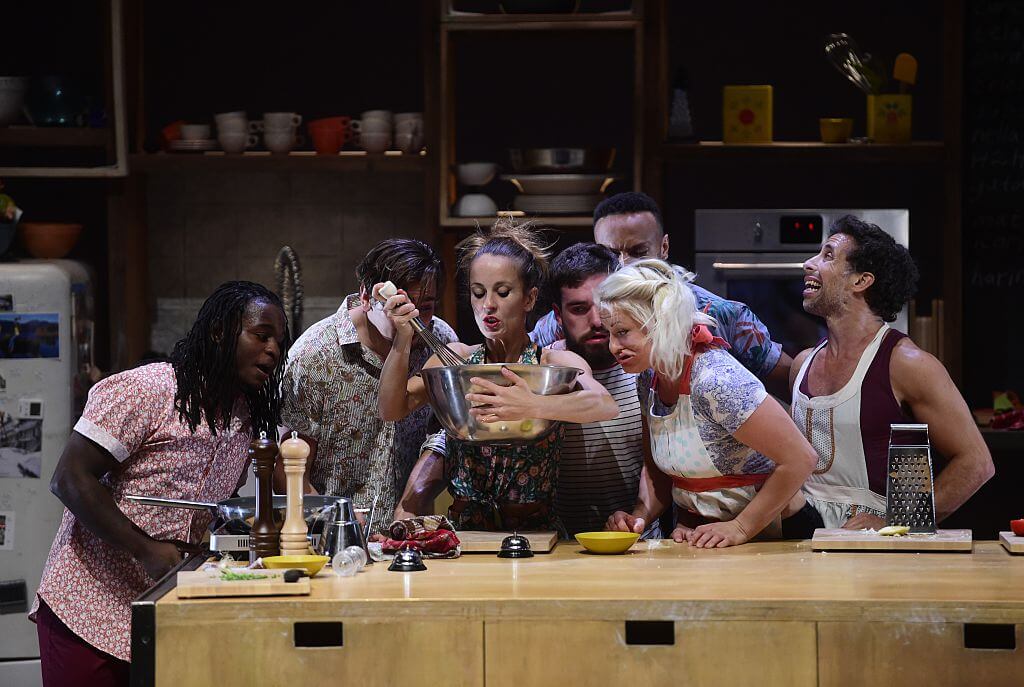
Getty Images











